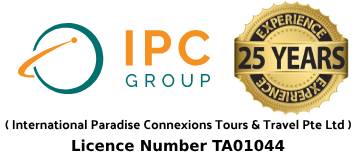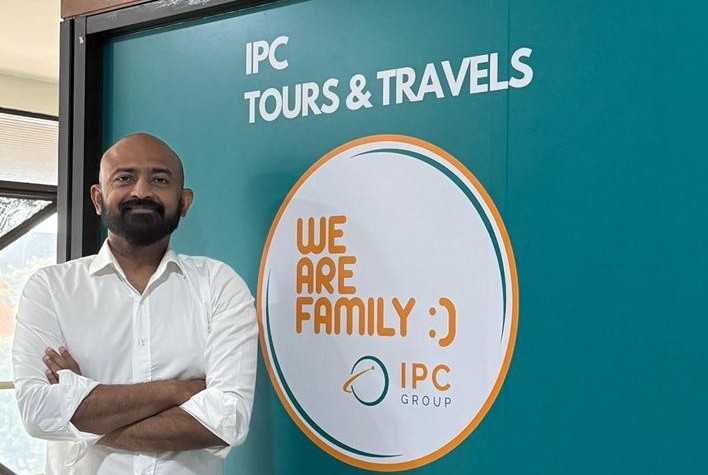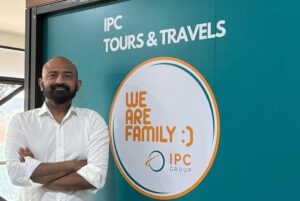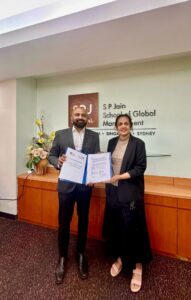Meet Raj, the founder of IPC Group Singapore who is on a mission to redefine travel. It’s not just about seeing the world. It’s about changing it, one journey at a time. Most people equate overseas vacations with leisure and enjoyment. For IPC Group Singapore, which has been operating for close to 30 years, travel is reimagined as a force for good.
Whether it’s organizing overseas immersion trips for students to developing countries, supporting elephant caretakers in Chiang Mai, or building toilets in rural schools, IPC Group Singapore’s community-based tours create real-world impact. More than 500,000 students and more than 200,000 adults have experienced its life-changing tours. Every trip is an opportunity for education, empathy and making a difference.
What inspired IPC Group to focus on community-based travel instead of the traditional leisure or luxury tourism model?
I lost my father at a young age and was raised in a single-parent household, where I was responsible for my siblings. Watching my mother struggle to raise us gave me a deep understanding of life’s hardships. I’ve always had a heart for the underprivileged. I have been volunteering in the Rotary Club for 12 years and I’m currently the club’s President-Elect.
I’m naturally a hospitable person. I spent my early career in Singapore Airlines. When I left the airline and started IPC Group Singapore, it was a company that offered traditional tourism and hospitality experiences.
But my travels to countries like India, Vietnam, Cambodia, Sri Lanka, and Nepal exposed me to the harsher realities of life. I saw slums, poverty, and suffering. Seeing a destitute person eating from a rubbish bin in Mumbai while I sat comfortably in a luxury vehicle left a deep impression on me.
Witnessing these moments made me realize I could use tourism to do more than entertain. I could use it to uplift communities.
What does sustainable tourism mean to you, and how does IPC Group Singapore ensure that its trips benefit host communities economically and socially without exploitation?
IPC Group Singapore’s sustainable tourism programs are built around the United Nations Sustainable Development Goals (SDGs), particularly the principles of eco-tourism and ethical engagement. It’s not just about making a profit, it’s about making a difference.
We support communities in tangible ways. We ensure our tours have long-term impact by tying them to education, infrastructural development, and awareness-building. This includes building toilets in rural schools and organizing medical camps where our nursing and medical students conduct health checks, hygiene education, and cancer awareness talks.
We are strong advocates of low-carbon travel. We discourage the use of single-use plastics and encourage travelers to bring refillable bottles. We also partner only with hotels and service providers that meet sustainability standards and use responsibly-sourced materials.
Our aim is to leave every place better than we found it. While we earn a profit, it’s always with purpose, so that we can reinvest into the communities that give so much to our travelers.
Can you share a memorable story where IPC Group Singapore’s community travel created a lasting impact, either for the travelers or the local community?
During one of our educational tours to a children’s home in India, a student started weeping. She was from one of Singapore’s top schools and came from a privileged background. When we checked in with her, she shared that after witnessing how other children lived, she felt guilty for taking things in her life for granted. The experience opened her eyes to the life she’d been blessed with, and the responsibility that comes with it.
Another incident involved the Mahout community in Chiang Mai, Thailand. Mahouts are elephant caretakers, integral to the region’s eco-tourism. During the COVID pandemic, their livelihoods were severely impacted. IPC stepped in with a virtual reality initiative to keep their conservation efforts visible to tourists and supporters. It helped sustain them through a challenging period.
On one of our tours to Nepal, we encountered a local who broke his leg while traversing mountainous terrain. They had no ambulance, no medical infrastructure. His neighbors were literally carrying him on their shoulders. Coincidentally, one of our participants was a doctor, and he was able to attend to the injured Nepalese.
Deeply moved by the experience, the doctor later returned with medical stretchers and started a basic medical camp for the community.
It’s experiences like these that show how meaningful these community-based tours can be —both for travelers and the people they meet.
How do your corporate and school programs foster meaningful cross-cultural understanding and empathy among participants?
For corporate participants, such trips encourage bonding, break down hierarchical barriers, and nurture greater respect and unity across the workforce.
Our participants often return home with transformative experiences that broaden their perspectives and give them a better appreciation of life.
Many children in Singapore may not fully understand how fortunate they are. Travelling to less-developed countries offers them a humbling experience. They often begin to appreciate their parents, teachers, and the Singapore government more. These journeys build life experiences and emotional intelligence that go beyond academic achievements, preparing them for life.

How can businesses better integrate team bonding through volunteer travel experiences?
Our approach to travel isn’t just about fun. It’s about meaningful engagement.
Our activities are tailored to a company’s values and Corporate Social Responsibility (CSR) goals, creating an experience that aligns with their mission.
Volunteer-based team bonding not only improves morale and retention, but also builds empathy across departments. Whether it’s refurbishing a school in Cambodia or organizing care packages for the elderly, these team experiences humanize the workplace and build lasting trust among employees across departments.
What makes a good entrepreneur?
A good entrepreneur must have a strong vision and mission for their business. The business mission should encompass purpose, sustainability and community impact. Business is no longer just about price or profit margins. Today’s customers and employees are drawn to businesses with a strong social mission.
Therefore, entrepreneurs must embed corporate social responsibility in their company’s DNA. It’s about giving back while creating value. Your businesses should benefit more than just your financial bottom line.
Employees should be proud to serve your company’s mission. Clients should see your commitment to your mission in every interaction. And above all, your success should contribute to society.
What’s your vision for Singapore in the next five years?
I envision a future where more Singaporeans step into entrepreneurship, for purpose, and not just for profit.
I also believe in nurturing not just academic excellence in our youths but also emotional intelligence through experiential, community-based learning.
At the same time, we must address our ageing population. We have one of the best infrastructure globally, but we need to build better social bridges. In particular, I hope to see stronger connections forged between our youth and elderly.
Programs that involve intergenerational bonding will help ensure we not only prosper materially, but also grow in empathy and unity as a nation.
If you could have a superpower for one day, what would it be and why?
If I could have one superpower, I would choose the ability to eliminate loneliness among the elderly.
In my work with the Rotary Club Singapore, we see so many seniors living alone in rental flats. They are often forgotten, and sometimes battling mental health issues like dementia, or simply enduring life in silence. I feel for the elderly as I lost my mother to cancer two years ago. She had me, but many elderly folk have no one.
With this superpower, I would give them the power of connection through support programs, companionship and mental wellness support.
Connect with Raj: IPCGroup, Facebook and LinkedIn.




